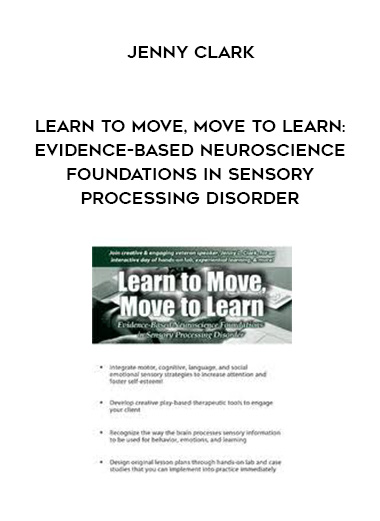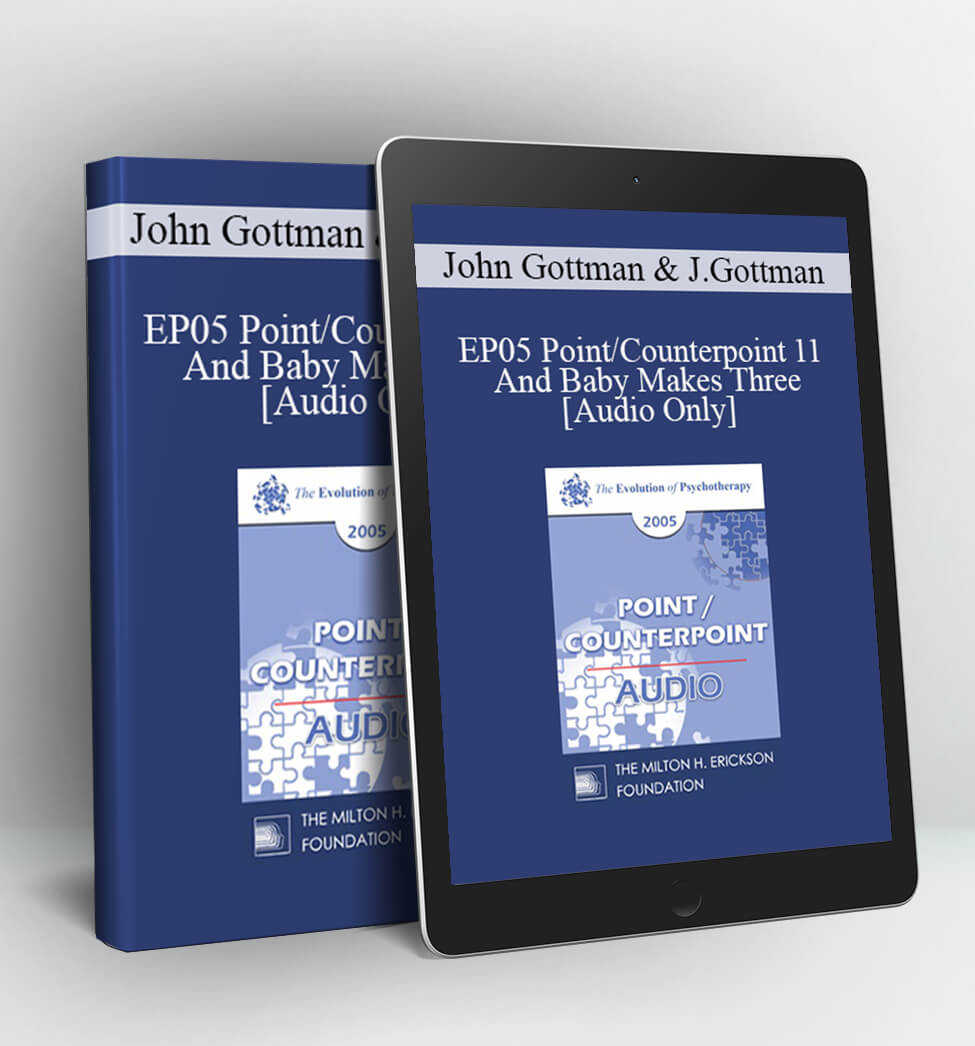LEARN TO MOVE, MOVE TO LEARN: EVIDENCE-BASED NEUROSCIENCE FOUNDATIONS IN SENSORY PROCESSING DISORDER – JENNY CLARK
Research reveals that 1 in 6 children have sensory processing disorder (SPD). Current evidence in sensory processing points to a neurological basis for this disorder. This epidemic of SPD in the pediatric population creates challenges for therapists, medical professionals, and educators in providing effective intervention and support for children and their families. Professionals need adequate training on the neuroscience foundations of SPD in order to understand why sensory driven behavior occurs and how to effectively address this disorder.
Jenny L. Clark, OTR/L, BCP, who has served in making children’s lives better for over 20 years, will show you this exciting and informative recording is filled with creative and useful sensorimotor interventions that can be easily implemented in the classroom, clinic, or at home. Participants will glean information about how to implement creative curriculum for early intervention, preschool, and elementary school children. Attendees will discover how to design sensorimotor theme-based lesson plans that can be implemented immediately.
Ms. Clark’s unique play-based treatment approach for children incorporates sensorimotor theme activities that facilitate development to enhance learning. Participants’ learning will be enriched through video examples, case studies, and current research to support therapeutic interventions.
- List 6 subtypes of sensory processing disorder
- Detail 10 process components of Ayres Sensory Integration® and Fidelity Measure© (ASIFM)
- Apply skilled clinical reasoning in OT-SI intervention
- Distinguish 7 elements of effective sensory-based intervention
- Evaluate practical evidence-based sensory strategies
- Develop a plan of care using creative curriculum for early intervention, preschool, and early elementary school children
GET LEARN TO MOVE, MOVE TO LEARN: EVIDENCE-BASED NEUROSCIENCE FOUNDATIONS IN SENSORY PROCESSING DISORDER OF AUTHOR JENNY CLARK
NEUROSCIENCE FOUNDATIONS IN SPD
- Subtypes of sensory processing disorder
- Sensory overresponsivity
- Sensory underresponsivity
- Sensory seeking/craving
- Dyspraxia
- Postural disorders
- Discrimination disorders
- Components of Ayres Sensory Integration® and Fidelity Measure© (ASIFM)
- Sensory integration intervention methods (OT-SI)
- Sensory-based intervention for best practice
- Case study
- Sensory simulation lab
EVIDENCE-BASED SENSORY STRATEGIES TO…
- Increase attention
- Improve sensory-related behavior
- Aid organizational skills
- Foster self-esteem
- Promote language
- Facilitate sustained active engagement
- Encourage learning through play
- Support progress in educational learning
LEARN TO MOVE, MOVE TO LEARN CURRICULUM
- Transdisciplinary teamwork
- 7 sequenced sensorimotor theme-based structure
- Warm-up
- Vestibular
- Proprioception
- Balance
- Eye-hand coordination
- Cool-down
- Fine motor
- Developmental readiness skills
- Cognitive
- Language
- Sensory
- Motor
- Social/Emotional
- Learn to Move, Move to Learn research
- Holiday
- Book
- General
- Sensorimotor themed lesson plans
- Adapting for early intervention
- Therapeutic tools
- Music
- Play skills
- Transitions
- Develop a “Ready-to-Implement” original lesson plan




